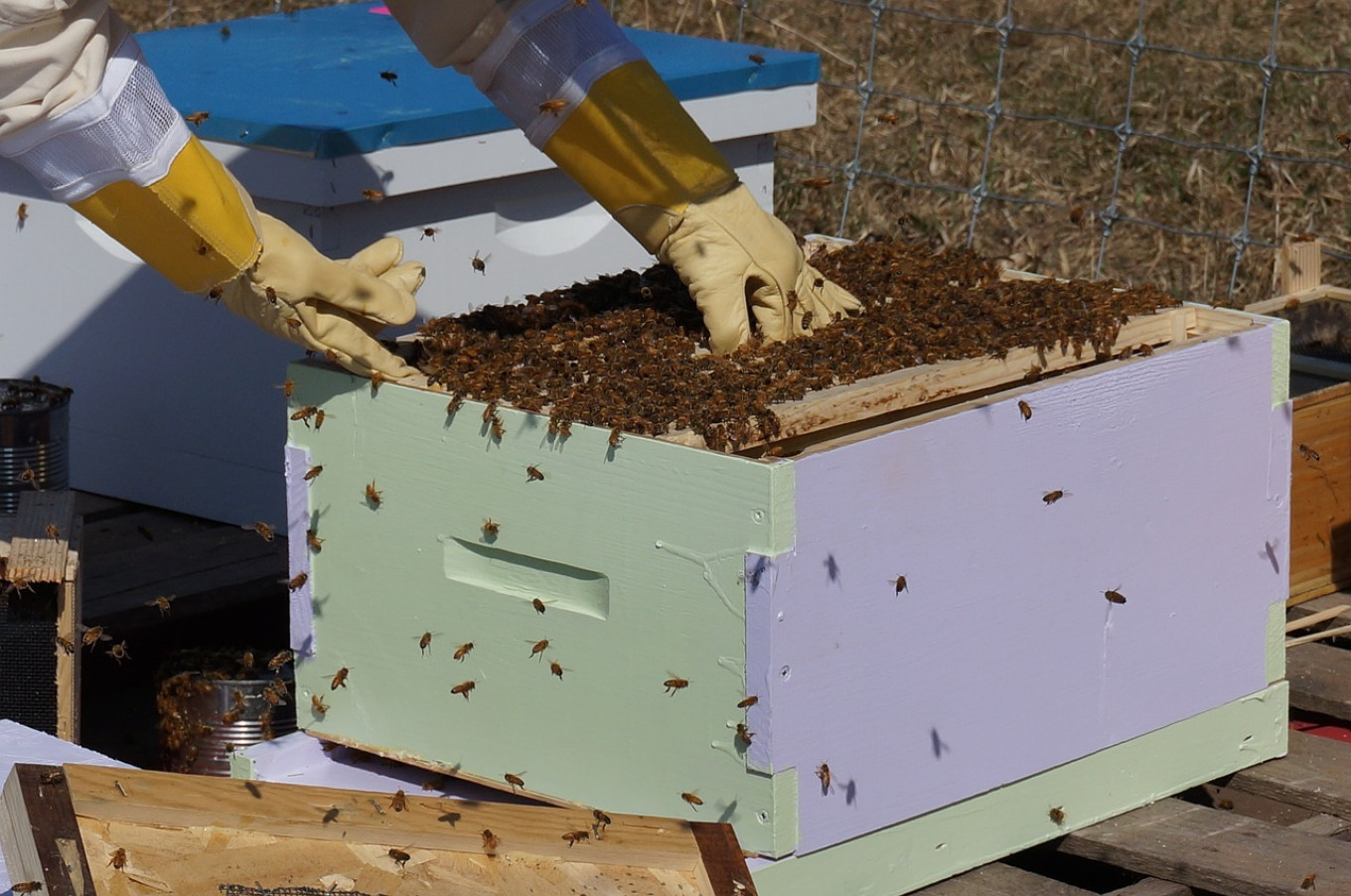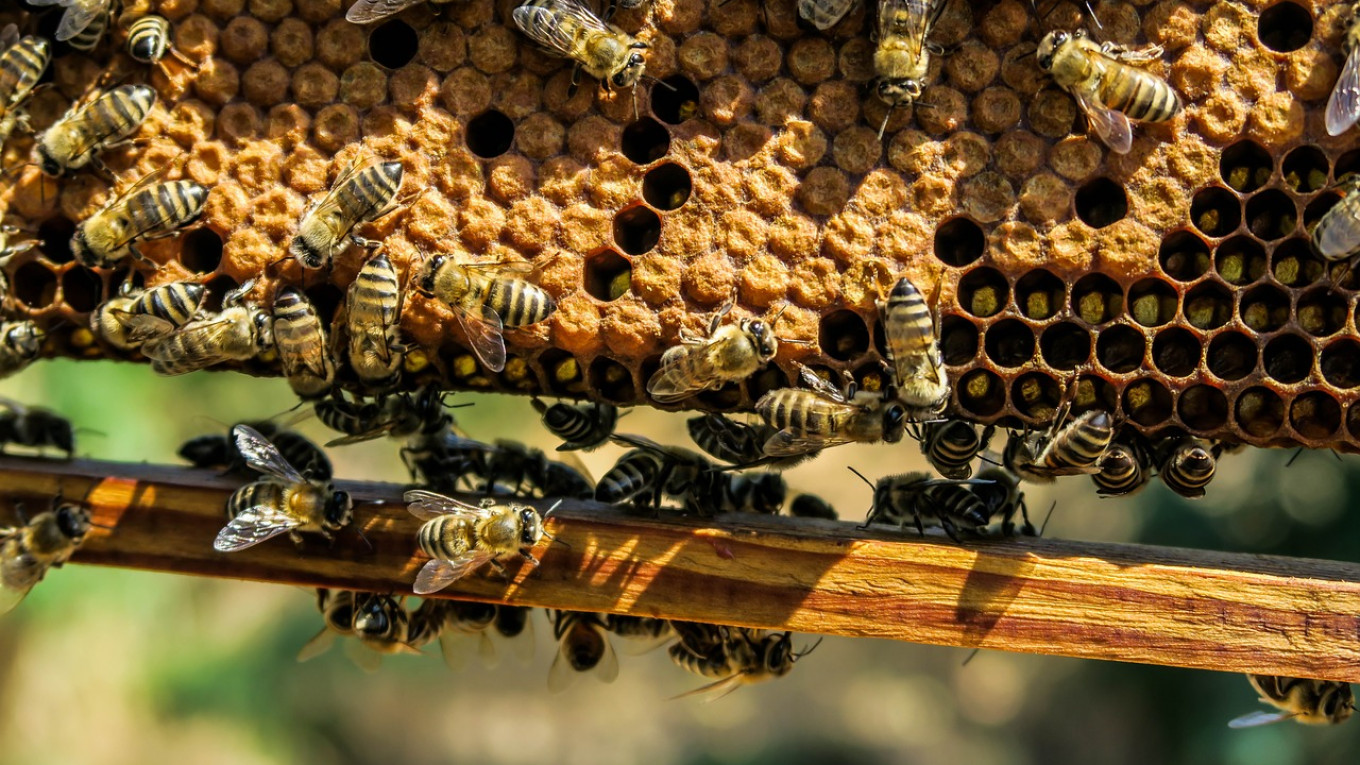A sharp decline in chestnut trees caused by a parasitic fungus in Russia's southern Krasnodar region is threatening the area's honey production, according to local beekeepers and scientists.
Asya Minasyan and her husband say they used to produce 500 kilograms of honey per year, but that the situation now is changing rapidly.
"The bee is basically our life," Minasyan said.
Minasyan, who has harvested chestnut honey from her 45 beehives for the last 15 years, said most of her produce now comes from linden trees.

According to Anna Brandof at Sochi's Beekeeping Research Center, chestnut trees are being affected by parasitic fungus and dying out at record speed.
Brandof said a lack of chestnut trees would soon mean no honey at all for many local beekeepers as they relied on it for honey production.
The Krasnodar region hosts 800 square kilometers of chestnut forests which have been suffering from blight caused by the Cryphonectria parasitica fungus since 1962, according to the World Wildlife Fund.
The fungus infects bark on the stems, branches and twigs of the trees. An invasive species of wasp, which is also damaging for chestnut trees, was discovered in the area in 2016.
A Message from The Moscow Times:
Dear readers,
We are facing unprecedented challenges. Russia's Prosecutor General's Office has designated The Moscow Times as an "undesirable" organization, criminalizing our work and putting our staff at risk of prosecution. This follows our earlier unjust labeling as a "foreign agent."
These actions are direct attempts to silence independent journalism in Russia. The authorities claim our work "discredits the decisions of the Russian leadership." We see things differently: we strive to provide accurate, unbiased reporting on Russia.
We, the journalists of The Moscow Times, refuse to be silenced. But to continue our work, we need your help.
Your support, no matter how small, makes a world of difference. If you can, please support us monthly starting from just $2. It's quick to set up, and every contribution makes a significant impact.
By supporting The Moscow Times, you're defending open, independent journalism in the face of repression. Thank you for standing with us.
Remind me later.







